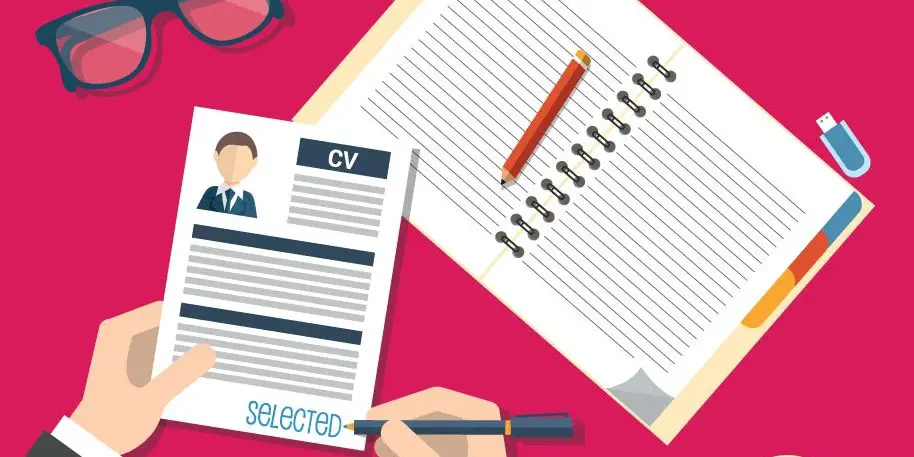
Usually you don’t get called to come in for a job interview not only because you are not the right fit for the job or your luck ran out. But most at times it is just because the right material wasn’t presented to the hiring manager or recruiter. You saw a job post and submitted a CV containing less vital information that could make you stand out. This is really common amongst job seekers who fail to prepare but don’t worry.

What is a CV?
For those who don’t know what a CV is. CV stands For Curriculum Vitae.
Curriculum Vitae is an outline of a person’s educational and professional history, usually prepared for job applications. Another name for CV is a Resume. A CV is the most flexible and convenient way to make applications. It conveys your personal details in the way that presents you in the best possible light. A CV is a marketing document in which you are marketing something: yourself! You need to “sell” your skills, abilities, qualifications and experience to employers. It can be used to make multiple applications to employers in a specific career area. For this reason, many large graduate recruiters will not accept CVs and instead use their own application form.
What are the relevant informations a CV should include?
The heading here will be your personal details which should include your name, email address or residential address, your date of birth , marital status, nationality and finally your contact number. Others may include their gender which is also necessary.
Including a photography isn’t essential here. Depending on the country you find yourself in you might have to add your photograph. British CVs don’t usually include a photograph unless you are an actor. In European countries such as France, Belgium and Germany it’s common for CVs to include a passport-sized photograph in the top right hand corner whereas in the UK and the USA photographs are frowned upon as this may contravene equal opportunity legislation – a photograph makes it easier to reject a candidate on grounds of ethnicity, sex or age. If you do include a photograph it should be a head and shoulders shot, you should be dressed suitably and smiling: it’s not for a passport
You should be able to clearly state your objectives to hiring managers or recruiters. Your objectives here should be clear about your goals. It needs to details about why you’re interested in a particular position or what makes you suited to the job. It should tell the hiring manager or recruiter whyat you can offer to the organization rather than stating you want to be a part of its success in growth.
Finally, it should highlight your strengths. It should tell the hiring manager or recruiter why you are the right fit for the job.
These are your people skills – interpersonal skills, communication skills, Critical Thinking and other qualities that enable you to be successful in the workplace. Employers want employees who are able to solve problems on their own using creative thinking and thoughtful analysis. Dependability, Commitment to achieving consistent result, Constant improvement, Self-Development are very important qualities in an employee. List your personal skills in bullets.
Read Also : 7 Things To Do To Stay Sane While Waiting For A Feedback After Job Interview
These are the qualifications required to do the job. For example, computer skills, administrative skills, language or customer service skills. Presenting your technical skills on a resume can be a challenge. Find out what hiring managers want to see. When you know what they want to see, list the skills out in bullets.
[gov]
In this section, try to use more action words such as developed, conducted, trained, supervised and so on after stating the place of work and the work start date and end date. Try to relate the skills to the job opening. A finance job will involve numeracy, analytical and problem solving skills so focus on these whereas for a marketing role you would place a bit more emphasis on persuading and negotiating skills. Start with most recent jobs downwards. Do not forget to bullet the work places and the experiences as you list them.
As a college student or recent graduate, you should place the Education section after your Hard/Techical Skills section. Beyond that, the length of your section will depend on the amount of work experience that you have. this section will include the year your admission was processed and the year of completion, the name of the Institution and the qualification of the program you offered, The list should start with your recent qualification downwards.
Read also : Mistakes to avoid in order not to get your CV rejected by recruiters
Any evidence of leadership is important to mention: captain or coach of a sports team, course representative, chair of a student society, scout leader: “As captain of the school football team, I had to set a positive example, motivate and coach players and think on my feet when making field position changes, often in tense situations”. You can choose to go with evidence of employability skills such as team working, organising, planning, persuading, negotiating etc. You should seperate them out with bullets.
Avoid stating many passive, solitary hobbies (reading, watching TV, stamp collecting) or you may be perceived as lacking people skills. If you do put these, then say what you read or watch: “I particularly enjoy Fringe, for the vivid insights you get into what might be”.
Any interests relevant to the job are worth mentioning: current affairs if you wish to be a journalist; a fantasy share portfolio such as Bullbearings if you want to work in finance.
You can omit this section if the job description that does not require you to submit your references. if you want you can add this section. Normally 2 or 3 referees are sufficient. But one of your referees should be an academic reference. The rest can be employees from your last job.
What makes a good CV ?
A good CV should be informative and concise. Its information should be clearly laid out, logically ordered, easy to read and not mixed up. It should be accurate in content, spelling and grammar. Nobody likes an employee who can’t spell or does things in a disorganized manner.